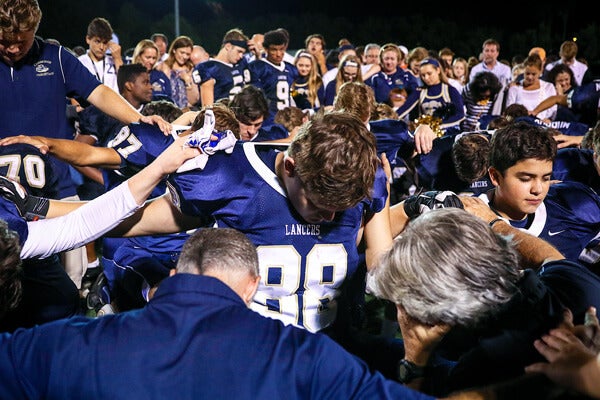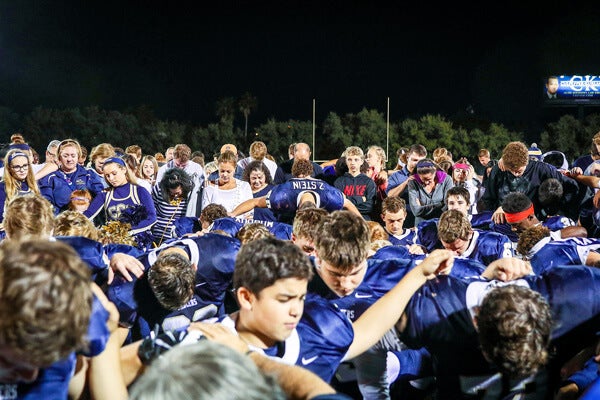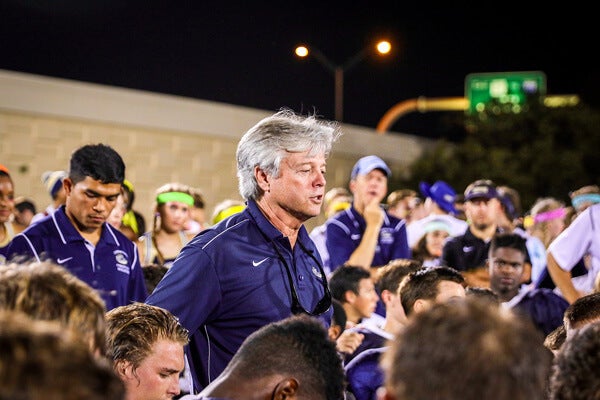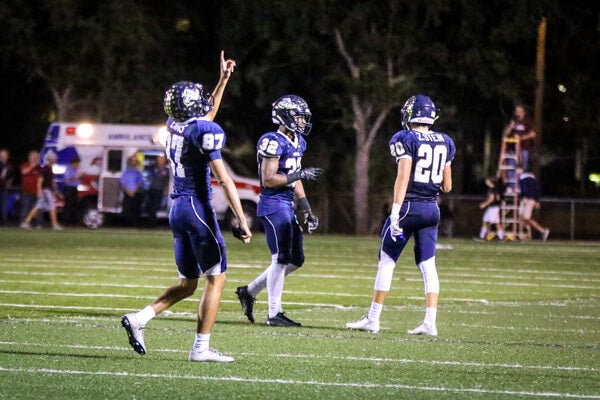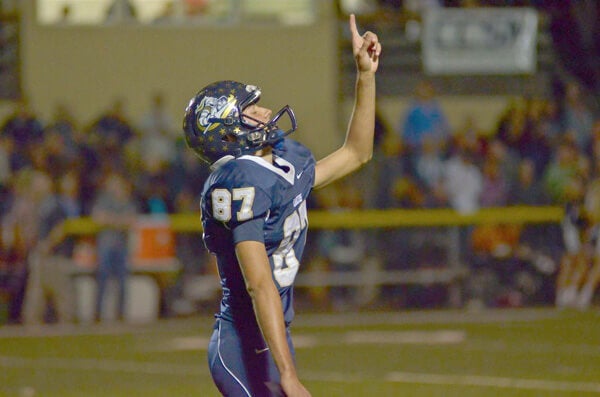In the fall of 2015, Cambridge Christian School earned the right to compete in the state football championship for the Florida High School Athletic Association (FHSAA) 2A division, against University Christian School. The game was scheduled to be played at the Citrus Bowl in Orlando, Florida. Since both teams had a tradition of pre-game prayer, Cambridge asked to use the loudspeaker to begin with a brief prayer before the kick-off. The FHSAA denied the request arguing that it could be viewed as an endorsement of religion since the prayer would be given using government-owned equipment.
First Liberty sent a demand letter to FHSSA on behalf of Cambridge arguing that association’s actions violated the school’s Constitutional rights. When the FHSAA refused to adopt a policy that would uphold the religious freedom of Florida students, First Liberty and the law firm Greenberg Traurig filed a federal lawsuit against the FHSAA.
A Tampa district magistrate issued a report and recommendation stating the two Christian schools cannot pray over the loudspeaker at the Citrus Bowl, prompting attorneys to file an appeal before the U.S. Court of Appeals for the Eleventh Circuit.
In November 2019, the Eleventh Circuit ruled that Cambridge Christian School’s argument that its free speech and free exercise rights were violated had merit and should proceed. However, three years later the U.S. District Court for the Middle District of Florida issued a decision affirming the FHSAA rule prohibiting the two Christian schools from praying over the loudspeaker.
But, following a subsequent appeal to the U.S. Court of Appeals for the Eleventh Circuit, in September of 2024, a three-judge panel affirmed the lower court’s decision, as did the “en banc” (full panel) of the Eleventh Circuit in February of 2025.
In June 2025, attorneys for Cambridge Christian asked the U.S. Supreme Court to reverse the Eleventh Circuit’s decision, and to limit or reverse Santa Fe Independent School District v. Doe (2000), which also held that private prayer over a stadium loudspeaker could be deemed government speech.
Then in November 2025, the U.S. Supreme Court declined to review this case.
Jesse Panuccio of Boies Schiller Flexner LLP said, “This case caused the Florida Legislature to change the law so that the FHSAA cannot again discriminate against its member religious schools by denying use of the loudspeaker for a pregame prayer. While it’s disappointing the Supreme Court chose not to take up the case to reverse the wrongheaded precedent that led to these events, we are gratified that religious liberty protections in Florida are now stronger today than when we began this case.”
“The Eleventh Circuit’s decision to label the prayer as government speech abandons the foundational promises of the First Amendment that are meant to guarantee individual freedom,” said Jeremy Dys, Senior Counsel at First Liberty Institute. “We are disappointed in the Court’s decision, but will continue to work for the religious freedom of every student in every school across the nation.”
News Release
For Immediate Release: 11.17.25
Contact: John Manning, media@firstliberty.org
Direct: 972-941-4453
U.S. Supreme Declines Review of Decision Barring Christian School From Praying Over the Loudspeaker at Football Game
The Court won’t review precedent that has sharply divided courts for many years.
Washington, D.C.—The Supreme Court of the United States declined to review a decision by the U.S. Court of Appeals for the Eleventh Circuit that barred the Cambridge Christian School from praying over a loudspeaker before the state championship between two Florida Christian schools. First Liberty Institute and the law firms Boies Schiller Flexner LLP, Winston and Strawn, LLP, and Jones Day represent Cambridge Christian.
Jesse Panuccio of Boies Schiller Flexner LLP said, “This case caused the Florida Legislature to change the law so that the FHSAA cannot again discriminate against its member religious schools by denying use of the loudspeaker for a pregame prayer. While it’s disappointing the Supreme Court chose not to take up the case to reverse the wrongheaded precedent that led to these events, we are gratified that religious liberty protections in Florida are now stronger today than when we began this case.”
“The Eleventh Circuit’s decision to label the prayer as government speech abandons the foundational promises of the First Amendment that are meant to guarantee individual freedom,” said Jeremy Dys, Senior Counsel at First Liberty Institute. “We are disappointed in the Court’s decision, but will continue to work for the religious freedom of every student in every school across the nation.”
In 2015, the Florida High School Athletic Association forbade Cambridge Christian School from praying over the loudspeaker at the Citrus Bowl ahead of the state championship football game. The FHSAA stated that because the stadium was city-owned and the FHSAA a government actor, it would violate the Constitution to allow two private Christian schools to pray over the stadium loudspeaker for less than a minute. In November 2019, the Eleventh Circuit ruled that Cambridge Christian School’s argument that its free speech and free exercise rights were violated have merit and should proceed. But in 2022, the U.S. District Court for the Middle District of Florida issued a judgment in FHSAA’s favor and later that year the Eleventh Circuit court upheld the lower court’s decision. In response to this litigation, the Florida Legislature passed Fla. Stat. § 1006.185, guaranteeing two minutes of opening remarks—which may include prayer—to each team before a high school sporting event in Florida.
###
About First Liberty Institute
First Liberty Institute is a non-profit public interest law firm and the largest legal organization in the nation dedicated exclusively to defending religious freedom for all Americans.
To arrange an interview, contact John Manning at media@firstliberty.org or by calling 972-941-4453.
12/5/22 – First Liberty’s Reply Brief
8/8/22 – First Liberty Initial Brief
11/13/19 – Eleventh Circuit Opinion
10/20/17 – First Liberty Opening Brief
01/26/16 – First Liberty Demand Letter
Video Credit: Polyphonic Image, courtesy of First Liberty
Photo Credit: Beth Dare Photography, courtesy of First Liberty
